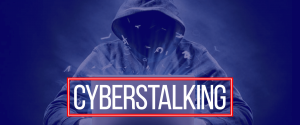

Get 93% OFF on Lifetime
Exclusive Deal
Don’t miss out this deal, it comes with Password Manager FREE of cost.
Get 93% off on FastestVPN and avail PassHulk Password Manager FREE
Get This Deal Now!By Nick Anderson No Comments 6 minutes
Privacy is a hot topic mainly for two reasons. Firstly, big tech corporations are evidently doing little to protect it. Secondly, users are facing the repercussions of sharing their life online in the form of cyberstalking.

There was a time when the only way you could find details about someone was by physically stalking the person or looking up the phone directory. But that is a thing of the past now. More – and potentially more harmful – types of cyberstalking have emerged thanks to social media.
The fact is that social media accounts hold so much information that someone can easily track interests, travel history, physical location, family and friends. It’s not even about social media giants not doing enough to protect our privacy, but that we tend to overlook what we share with people. As a result, people know too much about us, perhaps even more than our parents of siblings.
The word cyber describes the virtual world of connected computers. Cyberstalking means an obsession to gather information on a person for the purpose of causing harm. Take the example of Facebook. Someone with an interest in you – for whatever reason – will check out all your posts, your likes, your check-ins, your comments, and everything else you have made visible to the public.
Cyberstalking has real-world implications beyond the common unsolicited messages. Women – especially – are no stranger to unwanted attention from strangers. Sexual harassment is not just happening in the corridors of workplaces and other places but it has victimized many online as well. Online harassment is often an extension of physical harassment.
Social media conversations take place on personal space, pages or groups, or your friend’s space. Imagine your friends make plans for a movie during the conversation or you reveal your plans to catch a movie, the stalker can see the information and potentially intercept you physically at the movie.
It is why you must absolutely be mindful of what you share on the internet and whom you share it with.
Catfishing means impersonating someone or assuming a fake profile on social media for the purpose of luring someone into a relationship. Regardless of the end purpose, the first step is always to gain the trust of the victim, then move forward with the nefarious purpose.
In the worst case scenario, such attempts could lead to blackmail. The perpetrator could gain access to content that you might have shared in confidence.
The scale of cyberstalking goes beyond just fraud, it can be used to defame.
It is very easy to make fake social media accounts. All it takes is someone willing enough to go through the process of building a convincing profile and it can then be used to defame. An account could be setup in your name with your profile picture and rudimentary personal information, and the perpetrator could start posting hate speech or explicit language through the account.
Observers may not confirm your identity by looking into your content – if they do check, at all. You can become a victim of defamation that can lead to many consequences, such as disturbed personal life.
Stalkerware is a term derived from spyware which is exactly what it sounds like. It is a software that tracks everything you do on your device, such as web browsing history, calls, texts and location data. A perpetrator could even use your webcam to spy on you.
We’ve talked about how an Evil Twin Attack uses a fake access point to lure you into establishing a connection. If a perpetrator is hellbent in causing you harm, it’s possible he might try to carry out the said attack.
You are in total control when it comes to your digital life; you decide the content you put up for others to see. Here are a few tips on how to stay protected against such cyber threats.
Social media is a fun place to be where you can connect and meet new friends. But our sense of consideration over the sharing of personal information on the web is receding. Cyberstalking is a real phenomenon, which is affecting a lot of people, going as far as to cause traumatic experiences and damage to personal reputation.
You can also take advantage of FastestVPN, so that the ISP cannot track what websites you visit.
© Copyright 2024 Fastest VPN - All Rights Reserved.


Don’t miss out this deal, it comes with Password Manager FREE of cost.
This website uses cookies so that we can provide you with the best user experience possible. Cookie information is stored in your browser and performs functions such as recognising you when you return to our website and helping our team to understand which sections of the website you find most interesting and useful.
Strictly Necessary Cookie should be enabled at all times so that we can save your preferences for cookie settings.
If you disable this cookie, we will not be able to save your preferences. This means that every time you visit this website you will need to enable or disable cookies again.


